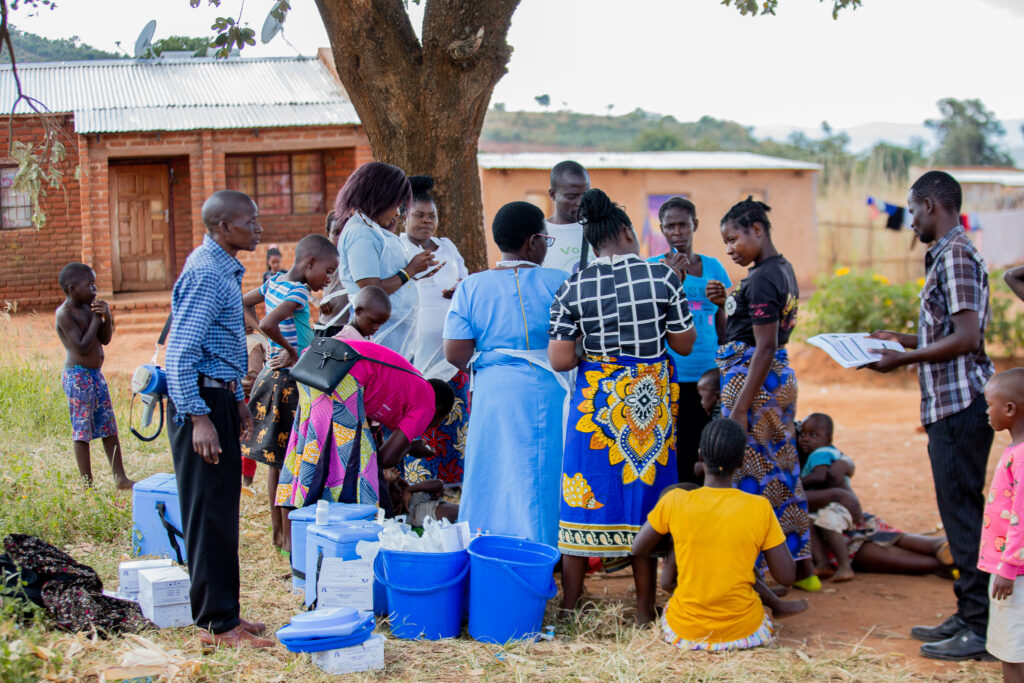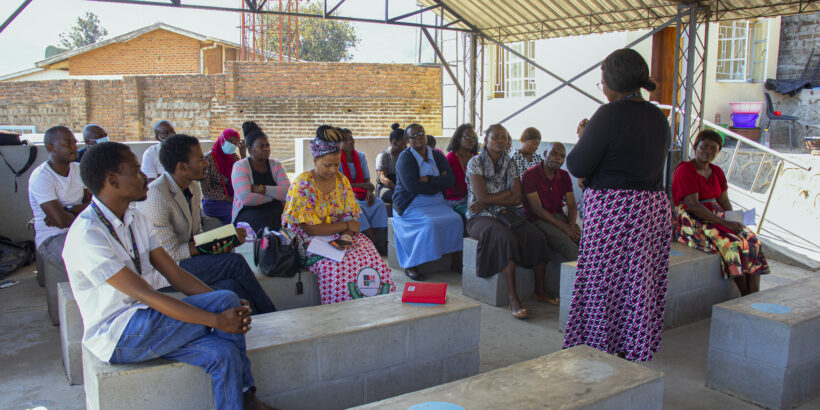National vaccine introduction campaigns require immense resources and support from government officials, health care workers, and community members. Local community knowledge of a vaccine before and during a campaign is important for acceptance and uptake when the vaccine is newly available. Community engagement after a vaccination campaign is essential to ensure that children receive routine immunizations.
After the integrated typhoid conjugate vaccine (TCV) campaign in Malawi in May 2023, health officials worked to transition TCV into routine immunization. This is an immense logistical process and requires a shift from pre-campaign engagement with the community to inform about the vaccine and campaign dates, to sharing messages and information about bringing children for routine checkups and vaccines, including TCV.
Community engagement before and after the TCV campaign
The Malawi Ministry of Health used television advertisements, radio announcements, mobile vans, theatre performances, and in-person meetings with key leaders to promote the TCV campaign. Influential leaders and champions delivered messages in local languages at community events. School teachers shared information with their pupils, as did religious leaders. Volunteers in the community worked together with health care workers to promote the campaign and share valuable information about typhoid and TCV.
Community members in Malawi have a vital role to engage each other for vaccine uptake during the campaign and with a vaccine in routine immunization. They do this by emphasizing the importance of vaccinating children, staying protected from disease, and providing clear information about the safety of TCVs. Some members of the community shared their stories from having typhoid, going door-to-door to invite neighbors to get vaccinated.
Malawi-Liverpool-Wellcome Trust (MLW), working in a community in Blantyre, focused efforts on facility health talks where community members gather every morning to discuss vaccination and upcoming health programs. It serves as a space to discuss typhoid and TCVs and encourage community members to get vaccinated. MLW also supported a mobile van to visit the community marketplaces three evenings per week. The health workers from the van explain where health facilities are located and why taking children for TCV is so important for keeping them healthy.

Moving forward in Malawi
During the campaign there is momentum and energy, and a clear period to access the vaccine. Once the vaccine is available in the routine system, the novelty and excitement can diminish. With this, the community can begin to tune out repeated information. It is important that routine mobilization activities are exciting and creative so that communities engage with the information shared.
In Malawi, when a campaign concludes, policymakers and community health workers move on to plan the next campaign or health activity. Community and vaccinator fatigue is very real, and quickly results in disengagement or no activities happening at all. To combat this fatigue, and to keep energy and community engagement high, it can help to have time between large scale community engagement events—such as vaccination campaigns—so that both the community and health care workers have time to regroup and recover.
Our community structures remain constant sources of information for families. We know that local councils and faith-based leaders are an important way to reach communities. This often means information and engagement happens in person, face-to-face, and is not dependent on the unreliability of phones or power outages. It takes a village to take on typhoid!
Cover image: Health workers prepare for routine community engagement activities. Credit: MLW



